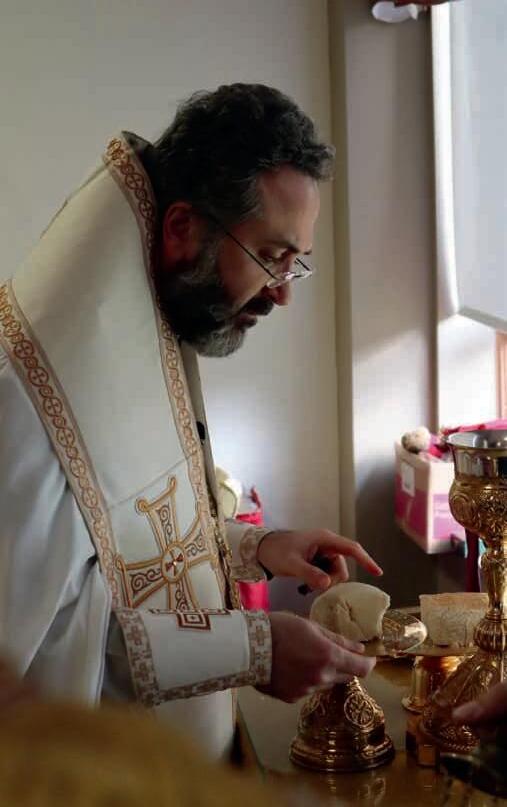
25 minute read
THE PHILOKALIA: The Spiritual Life of the Priest
22nd Biennial Clergy Symposium
ANTIOCHIAN VILLAGE CONFERENCE & RETREAT CENTER
JULY 22–26, 2024
Metropolitan Basilios of Australia & New Zealand
What is Philokalia? And why are the texts and teachings of the Philokalia important for someone who wants to understand the role and attributes of the spiritual father?
Spiritual fatherhood and the figure of the spiritual father occupies a central position in Orthodox spirituality; it is for that reason that it was always of interest to speakers and researchers. Many articles have been written, and numerous papers have been presented at various conferences on this topic.
There is no teaching in the Philokalia about the pastoral work of the priest, no advice or instructions on developing pastoral skills, on how to deliver a good sermon, or on how to make a fruitful pastoral visit to a sick and terminally ill patient! But the text of the Philokalia presents a comprehensive teaching about spiritual life.
If, for every Christian, the teaching of the Philokalia constitutes a framework of preconditions with regards to spiritual life, one can understand how much more this is so and is required in advance with regards to the spiritual life of the priest (spiritual father).
1. The present lecture is based on the texts of the Philokalia, which span the period from the 4th to the 14th century. This enables an overall approach as well as the possibility to present various teachings and opinions of the Fathers on the topic of spiritual fatherhood, and by extension its essential characteristics and charismatic features, so that one can ascertain that the teaching and experience of the Neptic Fathers, although they differ outwardly, is essentially the same. This proves that the patristic tradition is unified, for the Spirit that guides the Fathers is one.
2. In the present lecture, an attempt has been made to present the pertinent spiritual qualifications and spiritual gifts that the spiritual father should have.
3. The Philokalia is a work that includes teaching handed down from teacher to disciple for over a thousand years. In the teaching of the Fathers, the figure of the elder is described in all detail. Let us not forget that the Philokalia includes texts by numerous spiritual fathers and at the same time by numerous spiritual children of charismatic saints, as for example St. Symeon the New Theologian and his spiritual father Symeon the Pious, as well as his spiritual child Niketas Stithatos; or St. Maximus and St. Thalassios the Libyan; St. Gregory Palamas and his spiritual father, St. Nikephoros the Solitary.
It is for this reason that the study of their texts becomes necessary in order to understand correctly the genuine and Orthodox spiritual fatherhood. Their teaching is not the product of rational reflection but an experience of ascesis, obedience, and perfection in Christ.
4. Through the texts of the Philokalia, everything is referred to God, who is literally the “Father” as the prototype of the ministry of the spiritual father. I also refer to the topic of penance (epitimia), which is not mentioned directly in the texts of the Philokalia. On the basis of God’s “pedagogical withdrawal,” which never involves the notion of punishment but only of healing, I have formed a clear idea about how the spiritual father can be inspired as to the way in which he will perform spiritual fatherhood and understand the true nature of penances (epitimia) so as to use them as pedagogical means.
5. In our days, the important and sanctified bond of an elder or spiritual father is in danger of being distorted and misunderstood through an anti-hesychastic teaching. Hesychasm, as an ascetic therapeutic method, has been the heart of Orthodoxy since the times of the Apostles till our days. The purpose of this lecture is to offer, based on the texts of the Neptic and hesychastic Fathers of the Philokalia, the experience of the Neptic tradition with regards to the figure of the spiritual father. I will demonstrate the value of stillness, ascesis, and prayer in the therapeutic process, firstly, of the spiritual father himself and, subsequently, of his spiritual children. I tried to present the true meaning of obedience to a spiritual father as a means to be set free from self-love and selfishness, on the one hand, and as an imitation of the obedience of the Son to God the Father, on the other. This way of stillness and obedience is the one that prominent spiritual fathers have followed and continue to follow throughout the ages.
6. The lecture does not mention spiritual gifts and virtues in an abstract way but rather presents the “Philokalic process” of therapy according to the Neptic Fathers, which aims at restoring the image of God in the human person and at transforming the latter into a “Philokalic human being.” permission (blessing) of the bishop become fathers and beget a spiritual child within the Church through baptism and the regenerative mystery of repentance (metanoia).
7. Philokalia is not confined to the past, neither does it end in the 14th century with St. Gregory Palamas, but it extends into our own times. We have examples and testimonies from contemporary saints and spiritual fathers, for instance St. Silouan the Athonite, St. Seraphim of Sarov, St. Joseph the Hesychast, St. Paisios, St. Porphyrios, St. Sophrony, and others. These holy fathers experienced in their lives the Neptic and hesychast tradition of the Orthodox Church within our times and are regarded as the successors of the hesychast and Philokalic tradition. In their person we see embodied and encompassed the entire hesychast and Philokalic experience of the Church in the past. This proves that patristic tradition did not end at a certain point in time, neither did it cease to exist, but continues to be alive until our own times. The tradition of our Church is alive and uninterrupted, and according to the Apostle: “Jesus Christ is the same yesterday and today and forever” (Heb 13:8).
8. The Philokalia is a work “for the general profit of all orthodox people,” just as St.
Nikodemos and St. Makarios envisioned it in the prologue of the first edition of the Philokalia. If for every Christian the teaching of the Philokalia constitutes a framework of preconditions with regards to spiritual life, one can understand how much more this is so and is required in advance as to the life of the spiritual father. In our days our churches were replaced with a clinic and the spiritual fathers with a psychologist. Contemporary psychologists, psychiatrists and psychotherapists have undoubtedly important counseling work to do. But we must emphasize that the Neptic Fathers proved to be true anatomists of the human soul centuries before the emergence of modern psychology. In this respect, Orthodoxy does not reject, neither provides generalized opinions on these issues, but uses with discretion whatever it regards as useful and salvific for the faithful.
In the Orthodox tradition there is a special emphasis on the necessity of having a spiritual father guiding the faithful in their spiritual life. According to the Neptic Fathers no one starts walking on an unknown road without a guide who is going to show him/her the right direction. Besides, in the life of every person, success or failure in a task depends in many cases on their right or wrong choices regarding advice or opinion. A right or wrong choice with respect to a spiritual father can contribute to salvation or the loss of one’s soul.
The bishop is called “father after God.”1 Thus, the spiritual father par excellence is the bishop. The bishop through the holy ordination gives birth to fathers of the Church, that is, the presbyters. The presbyters in turn and with the 1 The Martyrdom of Polycarp, p. 12.
It is not essential for the spiritual father to be a priest; in other words, spiritual fatherhood is not always related to priesthood. In this case, spiritual fatherhood is a personal spiritual gift (charisma), and the spiritual father is virtually a charismatic and prophetic figure that has taken on this ministry thanks to the direct operation of the Holy Spirit. Then the spiritual father can exercise the guiding and counseling ministry regardless of the mystical authority to “bond and loose” sins.
Spiritual fatherhood does not involve the notion of authority; it is a taking on of responsibility and sacrificial ministry. Christ in His life and conduct exhibited a vivid example, in light of which the spiritual father can imitate Him and can be inspired by Him. Christ Himself witnesses that He is the “Good Shepherd”2 who came to “seek and save the lost;”3 and not only that, but He also sacrifices Himself for the sake of the sheep. He is the Teacher and Lord, and the one who washes the feet of the disciples at the Last Supper.
Spiritual fatherhood and the figure of the spiritual father occupy a central place in Orthodox spirituality, wherein the necessity of a spiritual father for the guidance of the faithful with regards to the spiritual life is particularly emphasized: “give me a word, so that I may be saved” was the life conduct for both monastics and laypeople, and that is exactly what they would ask from the great figures of spiritual life, seeking in this way the divine will.
2 Jn. 10:11.
3 Lk. 19:10.
Christianity is not a philosophy or a teaching, but a way of life. In their entirety, the texts of the Neptic Fathers of the Philokalia constitute a witnessing of “this life.”4 Thus, it is necessary for us to return to the origins, the sources, the authentic teaching of the Fathers, especially when we want to delve into such a spiritual matter as the issue of the spiritual father, which constitutes the pillar and foundation stone of the spiritual life.
The absolute and complete devotion of a spiritual father to their ministry is dictated by the initial exemplar (prototype) of God, who is presented as a Father. God is good and absolute love, but as a physician of souls He has in mind the healing of patients and so He allows temptations and tribulations to come, depending on what disease of passions and decay of sin a person suffers. Thus, He prepares His medicine by considering the sin that has its nest within the soul. The spiritual father is inspired by and imitates the prototype, God, and functions as a father and a pedagogue, not as a law-keeper or a judge. He is the “dispensation of divine philanthropy,” and thus he should exclusively be an instrument of the benevolence of God and should only act in this capacity.
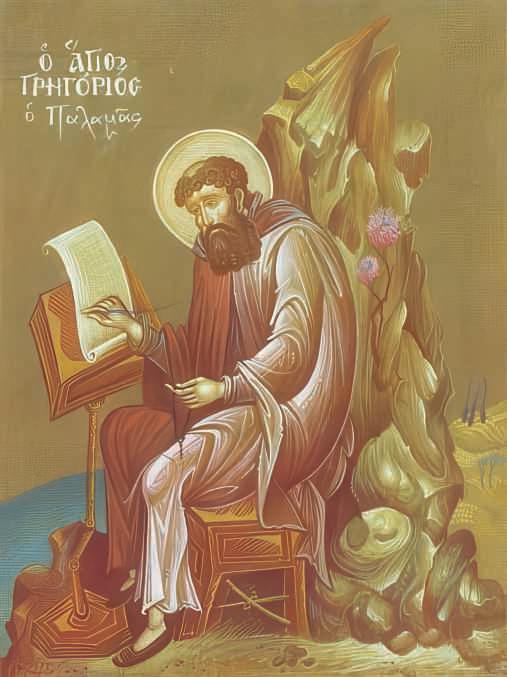
4 Acts 5:20.
Although the bond of spiritual fatherhood is an important and sacred institution, it is in danger due to a variety of misuses and deformations: the most dangerous of these being on the part of the disciples—the personality cult (glorification) and idolization of the spiritual father, and on the part of the spiritual father the oppression of the disciples’ freedom. One finds the true and genuine content of spiritual fatherhood in the person of Christ and His relationship with God the Father. The relationship of God the Father with His Only-begotten Son is presented as the infinite offering of love from the Father to His Son, while Sonship is presented as the infinite self-abandonment of the Son to the will of the Father.
Being a spiritual father presupposes the communion and indwelling of the Holy Spirit. If the spiritual father is the one who cultivates the spiritual life of his spiritual children and keeps their communion with the grace of the Holy Spirit alive, then he has to acquire himself the communion of the Holy Spirit in advance. Participating in the Holy Spirit has to come first, only then can it be transmitted to others. The spiritual father as a person is the one who lives according to the Spirit, the one who is full of the Spirit, the Spirit-bearer, the one who has (active) inside himself the Holy Spirit. The acquisition of the Holy Spirit does not come without conditions; it requires the spiritual father to prepare his soul so that he can receive the presence and activity of the Holy Spirit within himself. The spiritual father should strive to reach as much as he can in both perfection and virtue. He is the one who through ascesis, nepsis, and stillness (hesychia) has been reformed and transformed into an image of God.
“Haste to find an unerring and perfect teacher,” writes St. Kallistos, and adds that “by seeking with diligence and faith you will not fail in your goal.”5 From these words, it can be noted that the initiative with regards to spiritual fatherhood does not come from the teacher, but from the disciples. The spiritual father is always aware of his unworthiness and incompetence to take on such a responsibility.6 The disciple prays and searches, and then he decides to hand over (entrust) them to a spiritual father. Thus, it is the spiritual children who reveal even to the spiritual father his ministry, and it is not the elder who imposes himself upon the disciple.
It is only thanks to his virtue that the spiritual father draws disciples to himself, while the reputation of his virtue declares his gifts to the people. The gifts of the Holy Spirit operate according to his receptivity and strength, along with the support of the divine power that bestows him.7 According to St. Peter of Damascus, the so-called spiritual works are lifeless, if they are not performed with the cooperation between human effort and divine grace. Human ascesis draws close the grace of God and, simultaneously, the grace acquired through holy baptism and the other sacraments assists the whole process.
5 Kallistos and Ignatios Xanthopoulos, An Exact Method and Rule according to God 15, Philokalia V.
6 Fr. Sophrony writes characteristically: “The awareness of my poverty was profound, but nevertheless I could not quit from the spiritual ministry bestowed upon me. I did not seek it in any way.” Sakharov, Sophrony, On Prayer, p. 237.
The guidance in the spiritual life as “art of arts and the science of sciences” requires a great experience. The spiritual father should acquire personal experience and know as much as possible the whole range of spiritual conditions about which he will dare speak to others. This will be acquired through his obedience to a spiritual father, from whom he has been taught the rules of spiritual life and struggle against passions.
7 Maximus the Confessor, Various Theological Chapters, Sixth Century 13, Philokalia II.
The spiritual life has a “dynamic character,” and the acquisition of virtues does not happen at once, but gradually. The Neptic Fathers regarded ascesis as a means and not as a goal. The perfect athlete is not the one who fling himself into external bodily ascesis, but the one who gets involved in the internal work of the mind.8 Thus, the final goal is to guard the inner man, but this is done through bodily effort.
Since the goal of spiritual guidance is one’s cure, the spiritual father should firstly pass through the stages of spiritual advancement and acquire his own cure. Then he will become capable of leading others to their therapeutic end. The words of St. Gregory the Theologian are clear on this: “A man must himself be cleansed, before cleansing others: himself become wise, that he may make others wise; become light, and then give light: draw near to God, and so bring others near; be hallowed, then hallow them; be possessed of hands to lead others by the hand, of wisdom to give advice” (Oration 2, 71).
8 Niketras Stethatos, Third Century of Chapters on Knowledge 69, Philokalia III, p. 345.
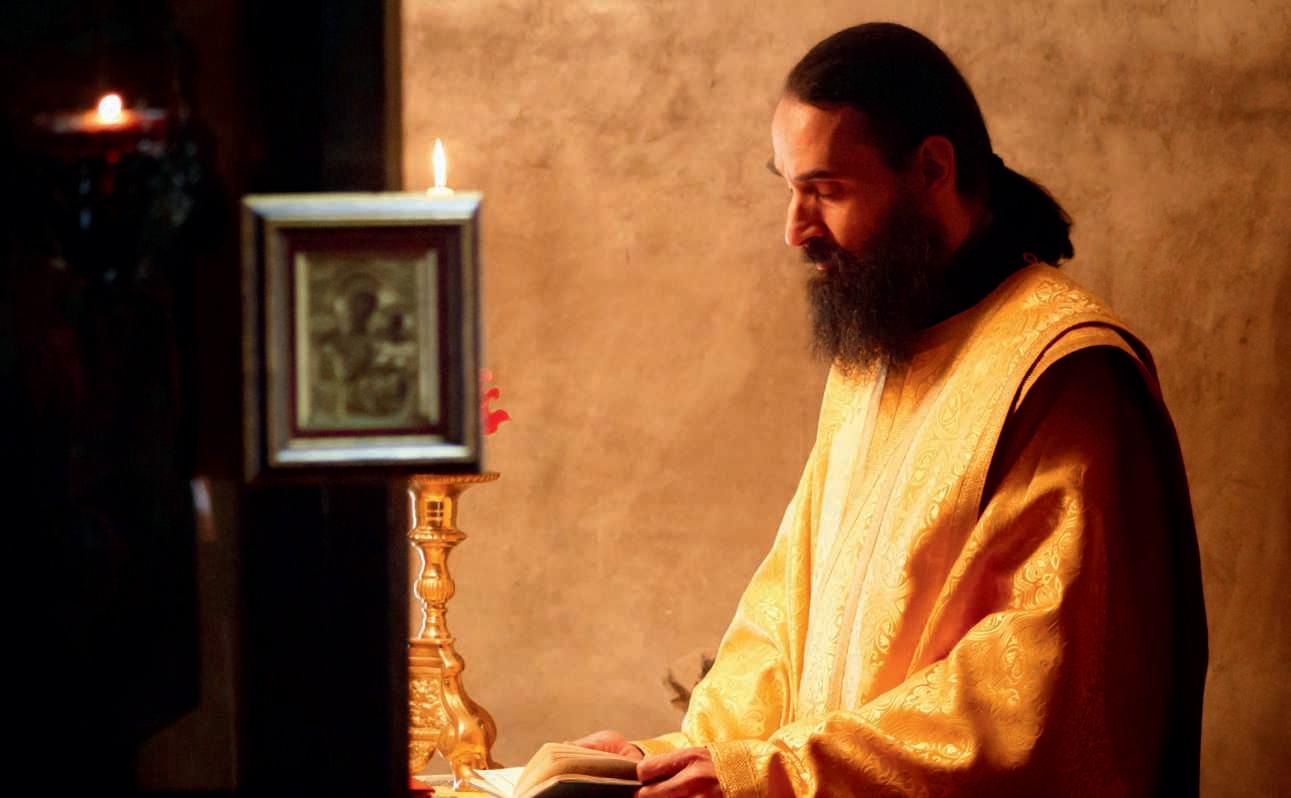
Stillness (hesychia), as it is referred to by the Neptic Fathers, constitutes a method of therapy and knowledge of God. As such it can find a way into being practically implemented into the ministry of guiding the souls of the faithful, for the pastoral work of the Church consists in the therapy and Theosis of its members. Stillness and nepsis purify the soul, illumine the mind, and bestow upon it the gift of discernment (diakrisis), which is regarded as the most important talent of the spiritual father. The spiritual father, endowed with the gift of discernment, uses it thoroughly within his pastoral ministry. He acts through oikonomia (economy) and, while sometimes he insists on the exactitude or the strict observance of the commandments and rules, on other occasions he has recourse to economy (a benevolent application of the legal rule).
“Acquire inner peace and thousands of people around you will find their salvation” (St. Seraphim of Sarov). Holy stillness and ascesis are inviolate preconditions for the purification of the soul from the passions and for its communion with God. It is not superfluous in the life of a Christian, even more so in the life of the spiritual father, who takes on the ministry of guiding souls. The spiritual father—living within a society where the pollution of noise and images indeed dominates and enslaves the whole person, causing thus the loss of freedom—needs to go away, concentrate, and be in silence every time external conditions threaten to break up the inner communication with God and one’s self. However, fleeing and being isolated are not regarded as goals in itself; the incentive is not the liberation from duties and earthly concerns, but to have withdrawal and solitude permeate one’s spiritual life and pastoral work towards the perfection in Christ.9
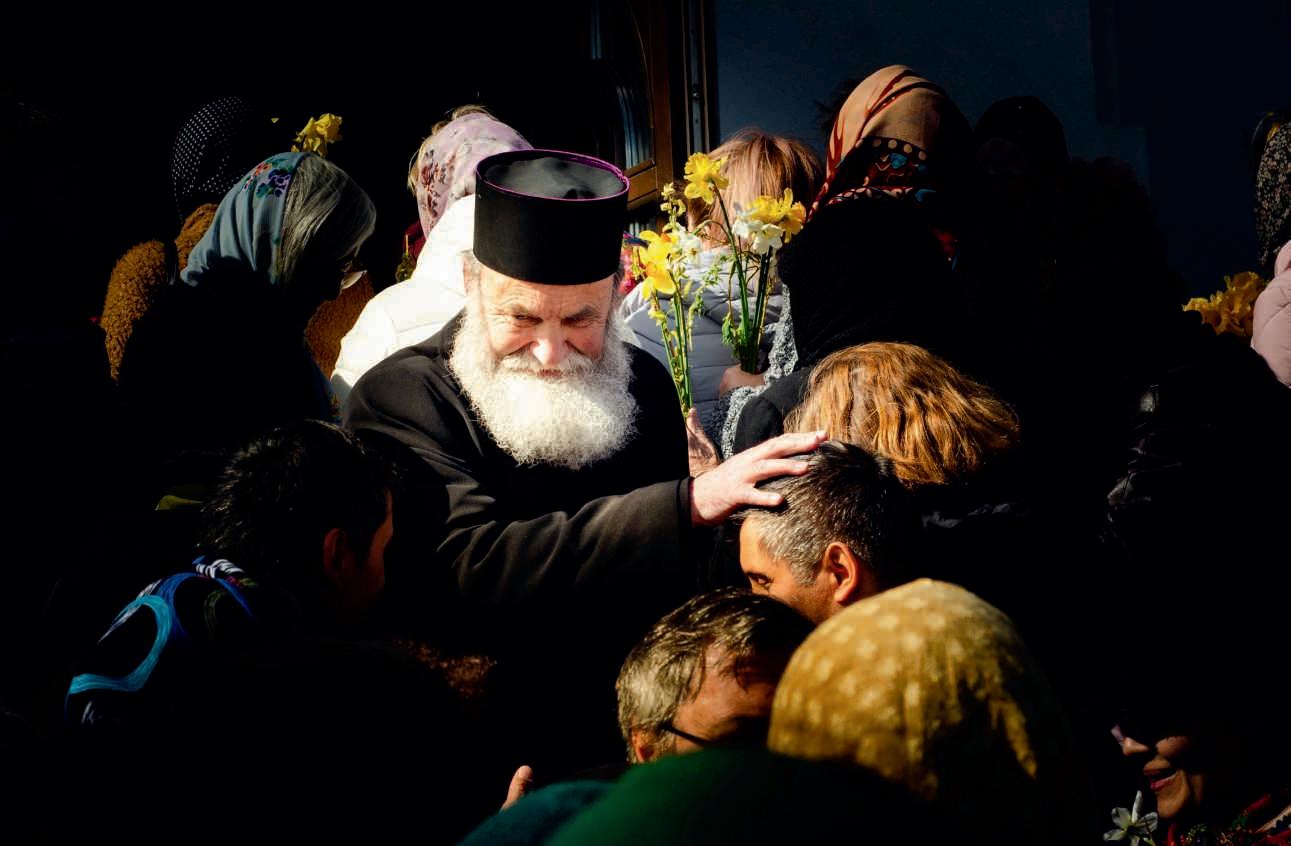
Solitude is a condition of the heart and not an issue of geography. The real journey of the elder is not so much his withdrawal into the desert as it is his spiritual withdrawal into his heart. St. Porphyrios of Kafsokalyvia, a contemporary saint, was appointed to the church of St. Gerasimos, the chapel of the Athens Multiclinic in the area of Omonoia Square, for 33 years, he said: “in the multitude of people, the world and the noise of Omonoia, I would raise my hands and live within myself just as if I were in the wilderness of the Holy Mountain.” being chanted and those being read.”10
Troubles and logismoi (thoughts) cloud the eyes of the soul and prevent one from seeing things clearly, whereas in the condition of silence one can be purified from the passions, be aware of his own spiritual sickness, and finally acquire the ability to discern and judge rightly both things in general and the guiles of the demons in particular. “The ear of the hesychast will receive from God marvelous words” (St. John of the Ladder).
Peter the Damascene writes about silence as follows: “silence is above everything and without it we are not able to purify ourselves and become aware of our sickness or the guiles of the demons; furthermore, we will also not be capable to perceive the power and providence of God within the divine words, both those 9 Gregory the Theologian, Oration 42, 24, p. 36, 484B.
Within his ministry of guidance, the spiritual father knows that he is a sinful and weak person. He confesses his weakness, but this should not prevent him from declaring the teaching of Christ on virtue and eternal life; not only what he has achieved and realized with regards to the teaching of the Gospel, but the entire teaching of Christ. For the spiritual father does not preach for himself, nor does he offer Christ in his own measure, but preaches Christ in His fullness.
Jason Catanese
Spiritual fatherhood as “an art of arts and a science of sciences” does not come without prerequisites. The spiritual father in his experiential journey towards spiritual fatherhood should be endowed with specific gifts and attributes. Firstly, for the spiritual father, self-knowledge is not just an issue of moral concern, but a practical issue essential for the right performance of his ministry. Selfknowledge leads to the knowledge of God.11 The one who has acquired self-knowledge and the knowing of God is in a position to know the soul of another person and to transmit to it the healing of the Spirit. The spiritual father’s self-knowledge is a result of his own reference to and dependence on another experienced and informed spiritual father, as well as the constant confession of his own sins. Self-knowledge makes him lenient towards others, compassionate towards sinners, and sympathetic to those confessing.
Spiritual and scientific knowledge are essential qualifications in the ministry of guiding the 10 Peter Damascene, An Exposition about False Knowledge, Book I, Philokalia III. 11 Makarios the Egyptian: “You want to know God? Know thyself in advance.” souls of the faithful, but it is impossible for one to become prudent and wise—in the spiritual sense—if he is not interested in becoming truly educated through the wisdom from above. This wisdom from above is given, thankfully, to those who ask and look for it with faith, humility, and love, regardless of if it includes human wisdom and education or not. The Neptic Fathers did not show contempt for, nor did they exclude, the knowledge that one acquires through study or listening to others. It is essential for the spiritual father to be educated to such an extent that he may be able to minister the needs of his spiritual children. On the other hand, the power of secular knowledge should not be over-emphasized but should be regarded as “assisting and secondary in nature” for the spiritual father, so that there might not arise any danger of turning the pastoral work into a sociology or philosophy and at the same time undermining the grace.
The ability to teach has always been interwoven with the pastoral ministry of the spiritual shepherd and it is regarded as a basic and necessary precondition for the pastoral ministry of the Church. The spiritual father is not just a teacher who teaches, but the one who gives birth and does so through his words. Living words accomplish the regeneration of the faithful. The spiritual father who speaks rightly should believe that his words come from God; for truth is not the one who speaks, but God who acts. The spiritual father needs the immediate guidance of the Holy Spirit regarding every person and in each case. The word that God has endowed humans will become, in the mouth of an experienced spiritual guide, a means of spiritual therapy. Through his words the spiritual father is capable of effecting spiritual therapy, and he has the power to restore the souls of people.
The element of free choice is particularly important in understanding the human being as created in the image of God. Freedom is the atmosphere within which Christian truth moves and expresses itself. Obedience presupposes the sacrifice of one’s own will and leads without much effort to spiritual progress. In effect, rooting out one’s own will is not a loss, but a cure for our sick will through the will of God. Through obedience, the faithful voluntarily submit his own free will to God. God accepts the gift and offers to the faithful not only his original freedom, that is, the potentiality to choose between good and bad, but also his final freedom, which is the participation in the eternal divine glory. Renouncing one’s own will in obedience to a spiritual father has to be done in a free spirit and with a willing heart. It constitutes a voluntary and free act. Faith in God is realized within obedience, just like the only begotten Son and Word of the Father has shown, since he became “obedient to death, even death on a cross.”12
The spiritual father, when he demands absolute or unconditional obedience, is not about a goal in itself, nor for the sake of domination. It is about a therapeutic method that aims at delivering the disciples from the false and deceptive ego so that he can enter into true freedom. The purpose of the spiritual father does not focus on the constant dependency of his spiritual children. The objective of the spiritual father is to guide him towards spiritual maturity, to lead him from childish spirituality to spiritual adulthood, according to the saying of St Paul: “and become mature, attaining to the whole measure of the fullness of Christ.”13
Regarding the issue of repentance, we should mention that the spiritual father himself needs repentance; a spiritual father who does not live constant repentance cannot minister to the needs of others. A Christian on one hand needs spiritual guidance to advance securely in their spiritual life, and on the other hand needs the sacrament of repentance and confession for the remission of their sins. Here we have two different procedures. In some cases, the sacrament of repentance and confession may relate to spiritual guidance and thus the latter, as well as the therapeutic tending of the faithful for the removal of their passions, can take place during confession, especially if the spiritual father is a priest and a confessor with permission to act in that capacity. The spiritual father is the instrument via which the remission of sins is realized by God. human limits. Before God, everyone takes on the responsibility of their personal salvation, but the spiritual father takes on the huge responsibility of the salvation of his children. Being aware of the cross-like burden of his accountability regarding the souls of his disciples is a basic precondition for accepting spiritual fatherhood; for he will be held accountable not only for himself but also for them, since he took on responsibility of their salvation.
12 Phil. 2:8.
13 Eph. 4:13.
The whole process of the sacrament of repentance, as the pastoral possibility par excellence within the Church, presents— both in terms of language and means—much similarity to the practice of medicine. It is about the “therapeutic method” of the Church.
Sin is the disease of the soul and epitimia (penances) are the medicine that cures it. Despite the important role that epitimia plays, they do not constitute an essential part of the sacrament of confession, nor some kind of supplement to it, for the remission of sins is given for free and without them. The epitimia in the Orthodox Church has a pedagogical, therapeutic, and restorative objective. They are placed within the context of the therapeutic and pedagogical ministry of the spiritual father.
The Church is a communion of persons, and the pastoral care of people should be personal. It is unacceptable for a pastor in general or for a spiritual father in particular to guide and lead people by ignoring the special conditions of their upbringing, their circumstances, and whatever constitutes the personality of each one.
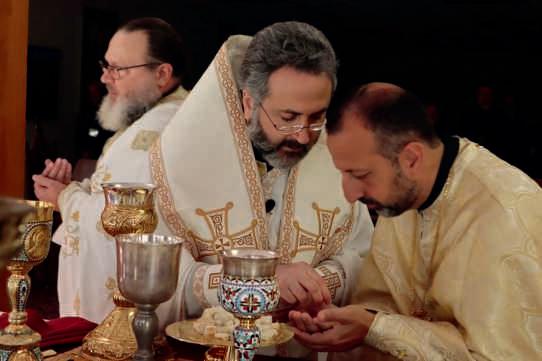
Just as the canons and the epitimia of the Church aim at the cure and salvation of people, something similar happens in the case of the implementation of economy (oikonomia), which is a kind of leniency and condescension with regards to the strict observance of rules. Either in the case of the strict observance of rules or in the case of implementing oikonomia, the spiritual father should—when there is some special need—minister in a fatherly manner and pursue with discernment the success of the spiritual advancement and salvation of the repenting person. This is so because spiritual ministry is not limited to the imposition of disciplinary interventions but pertains to the salvation of souls.
The spiritual knowledge of the human condition and the limitations of human nature, as well as its needs, makes the spiritual father strict towards himself and lenient towards others. In the ministry of spiritual fatherhood, meekness is the rule of behavior and conduct of life. There are cases, though, when he is called to express himself through holy anger. Strictness has to be only the final choice in dealing with an issue and when it is necessary for the spiritual father to use it, he should distance himself both from rage and the passion of anger. For his spiritual children, the spiritual father is on the one hand a loving mother and on the other a relentless father.
The work of spiritual fatherhood, as we have already mentioned, is “an art of arts and a science of sciences” 14 and this entails that the responsibility of the spiritual father is indeed huge and exceeds common 14 Neilos the Ascetic, Ascetic Discourse, Philokalia I.
Love is the feature par excellence, the cause and the essence of spiritual fatherhood. Fatherly love is the one that unites the spiritual father with his spiritual children, while the response of his spiritual children sustains their unity with him. The fountain of love is God, who is the absolute love. Self-love resists the love of God and the love of one’s brothers. The spiritual father is the image of the Good Shepherd, who has “the greater love” and “lays down his life for the sheep.”15 Love towards God finds its practical expression and implementation in the love we show towards our brothers. Spiritual fatherhood is a cross, which no one can bear without love— especially till the end. The spiritual father is set on fire due to his desire for the salvation of his children and asks to bear their cross; to be saved or to perish with them.
The prayer of the spiritual father for the sake of his children is already a kind of duty and a taking on of responsibility. Prayer is an expression of love. The spiritual father’s prayer and his intercession continue with a greater confidence after his death.
15 Jn 10:11.



